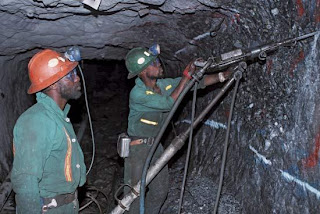Human Rights Watch (HRW) has
condemned the KDF’s appraisal attack in Garissa following attack in which three
soldiers had died on November 19.
In an online statement the
organisation says an employee at Garissa Provincial Hospital said at least 52
people with severe injuries had been admitted there, at least eight of them
with gunshot wounds on November 19 and 20, following the army reprisals.
“Witnesses told
HRW that, immediately after the killings of the three officers, the Kenyan army
surrounded the town, preventing anyone from leaving or entering, and started
attacking residents and traders,” the statement says.
Witnesses also
said that the military shot at people, raped women, and assaulted anyone in
sight. Among the gunshot victims were two school boys who are claimed to have
been home bound from school.
During the rampage
soldiers also set fire to businesses among them Muqti market, the Alwaqaf
building and Maua Posho Mill.
“The military
remained in barracks on November 20, but regular police, administration police,
and riot police continued the attacks,” HRW.
HRW now puts the
government on the spot to end its arbitrary attacks by members of the military
and police against residents of the northern region as a routine response to
any attack on its security forces.
“The level of
abuse by Kenyan security agencies following last week attack on three of its
military officers is appalling and a complete contradiction of the government’s
obligation to protect its citizens and guarantee their rights and freedoms,”
said Leslie Lefkow, deputy Africa director at Human Rights Watch.
Lefkow says the
government should respect the rule of law and ensure that its security agencies
follow the strict letter of the law in detaining people before handing them
over to the criminal justice system.
Dujis MP Aden
Duale is quoted in the statement against the human rights abuses in Garissa
saying,“over 70 people have been injured, some by gunshots from the Kenya
Defense Forces, women have been raped.”
This not the first
time HRW is accusing the government of complacency on armed forces in North
Eastern, its May report “Criminal Reprials: Kenya Police and Military Abuses
Against Ethnic Somalis” has been ignored.
“(We) documented
serious abuses by security officers in the northern region following attacks in
which security officers were killed. In October we documented cases of similar
abuses in Mandera and Garissa, each time in response to a grenade or gun attack
on security officers,” it says.
Following the
report the military promised to end such violence to no avail and no one has
not been detained or investigated or any evidence of any investigations by
police into the abuses.
“The Kenyan
government should take direct responsibility for the persistent abuses by its
security forces in Northern Kenya, get them under control, and hold them to
account,” Lefkow said










